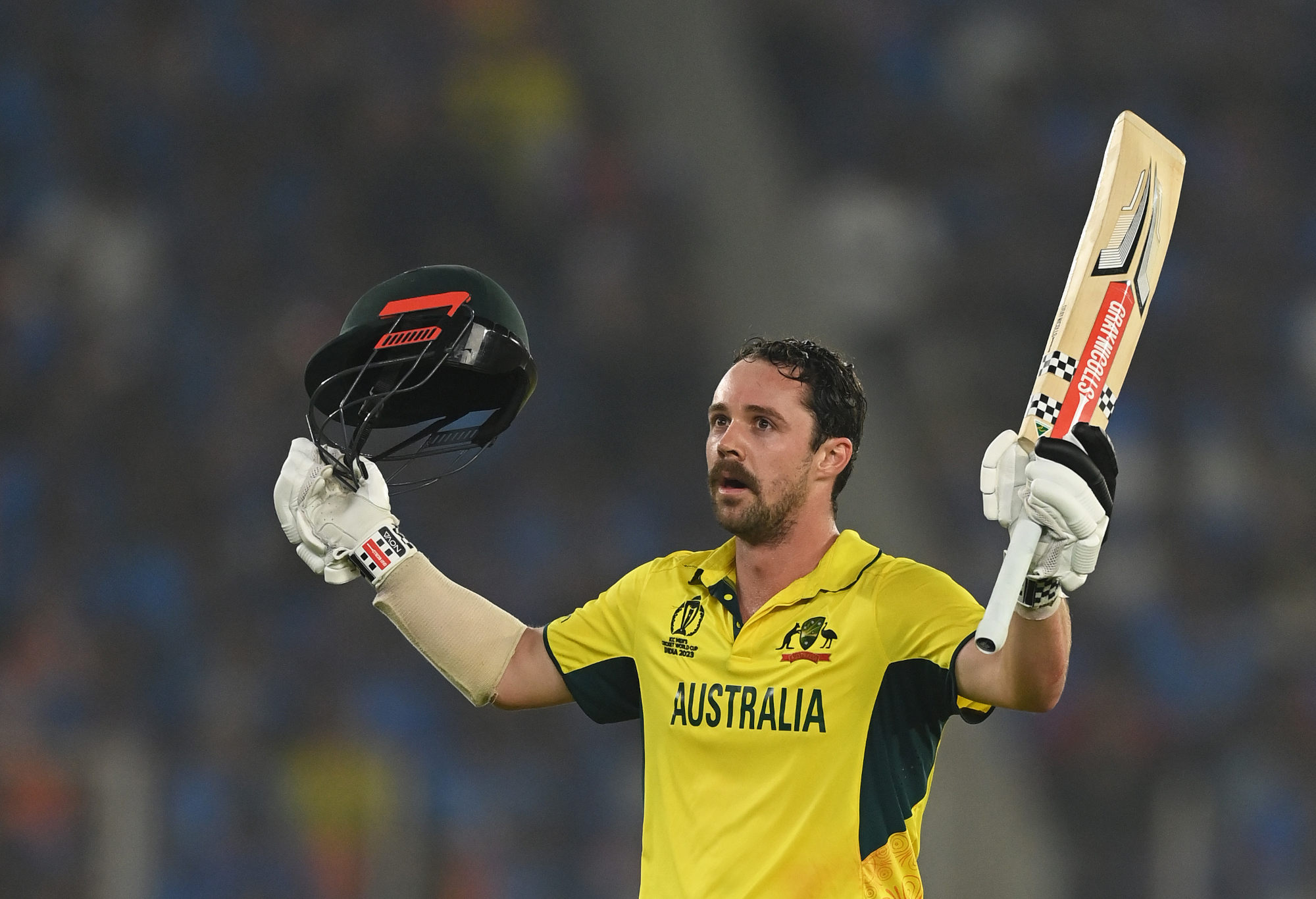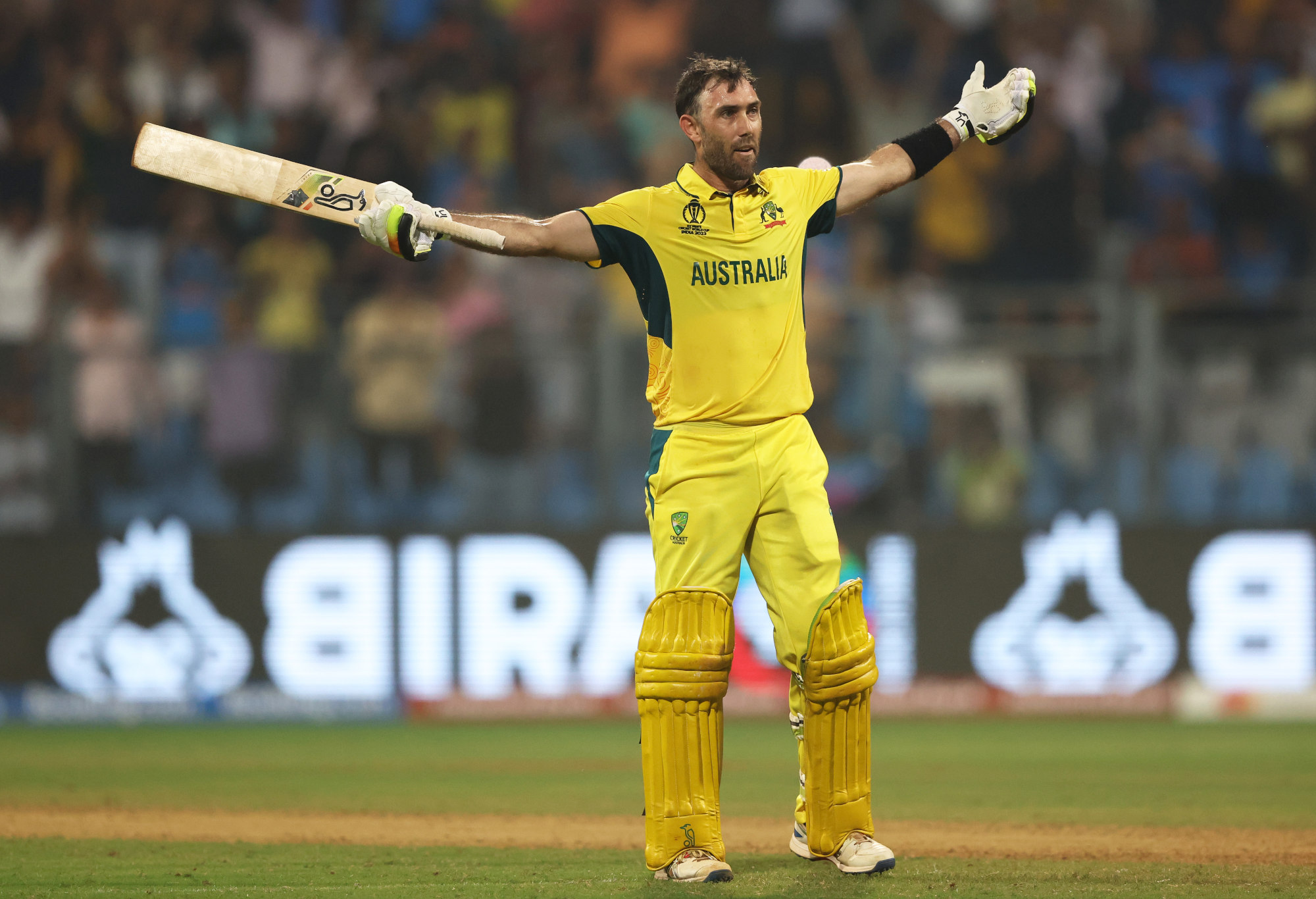MUST WATCH: JFM obliterates IPL bowling attack - even Bumrah! - for 15-ball 50... and keeps going
A six-laden, 27-ball 84 from Jake Fraser-McGurk to continue his outrageous debut IPL!
The recent Cricket World Cup gave me the opportunity to rekindle my love for the ODI game, and it also gave me the opportunity to compare the 50 over one-day game with the T20 Game.
One significant difference, in my opinion, is the importance of the batting partnership in the fifty-over game. In the T20 format, normally just one top-order batter blazing is enough to get a decent score. But in the 50-over game teams need to build high scores on a regular basis to achieve consistent success.
Australia, India and South Africa did well in this regard, while the likes of England, Pakistan and Bangladesh struggled to put together enough partnerships.
In this article, I will try to find the best partnerships (by position) for Australia, the most successful team in CWC history, over different World Cups.
In my selection process, I have given quality greater importance over quantity; thus the importance of the match, the quality of the opposition bowling, the condition of the pitch, everything came into consideration.
Also, we should keep in mind the massive change that the ODI game has gone through over the years, for example, in the tournament’s early years games were 60 overs a side, not today’s 50.
1st Wicket: Adam Gilchrist & Mathew Hayden (172 vs Sri Lanka in 2007 at Bridgetown)
There were several options available, and there was a slight personal bias in my final selection. I always wanted Adam Gilchrist to feature in this article.
The Gilchrist-Hayden duo already had a century stand in WC final in their bag; having scored 105 for the opening stand in the 2003 final against India, but they just provided the foundation before Ricky Ponting and Damien Martyn went berserk.
Here, the 172-run partnership in just 23 overs effectively decided the fate of the match. Gilchrist was especially aggressive, hitting 8 sixes and 13 fours in his 104 ball 149.
Later, he added two catches behind the stumps to pick the Man of the Match award. Hayden was much more circumspect, taking 55 balls to score 38; but he rotated the strike beautifully giving most of the strike to his more belligerent partner.
Back in 1975, at the Oval, Rick McCosker (73) and Alan Turner (101) had set the bar by putting on 182 for the opening stand against SL (still an associate member); in the process, Turner became the first Aussie to score a WC ton.
The David Boon-Geoff Marsh duo was a big factor in Aus winning the World Cup in 1987 and the pair kick-started Australia’s campaign with a 110-run stand against India at Chennai.
Also, it was the 259-run stand between Warner and Mitch Marsh against Pakistan, in this year’s event, that really started Australia’s successful bid for the title.
2nd Wicket: Aaron Finch & Steve Smith (182 vs India in 2015 at SCG)
The much-anticipated semifinal was effectively over after Smith blazed his way to a 93 ball 105, smashing 11 fours and 2 sixes in the way. Finch at the other end, gave him excellent support, frustrating the Indian bowlers.
3rd Wicket: Ricky Ponting & Damien Martyn (234* vs India in 2003 at Johannesburg)
Coming together at the wicket in the 20th over with the scoreboard reading 2-125, the pair batted for the rest of the innings, taking the score to 2-359, a score that was always going to be outside the reach of their opponents.
Ricky Ponting finished 140* (4 fours, 8 sixes) and Martyn 88* (7 fours, 1 six).
Back in 1996, the Waugh twins had put on 207 for the 3rd wicket against Kenya, at Vishakhapatnam.
4th Wicket: Travis Head & Marnus Labuschagne (192 vs Ind in 2023 at Ahmedabad)
20 years on, India had a chance to take revenge. In fact, they went into the final as the firm favourites. Yet, the massive crowd at Ahmedabad went home disappointed.
After the Australian pacers bowled superbly to restrict the strong Indian batting lineup to just 240 runs on good batting conditions, Indian seamers did well to slow the Aussies to 3-47.
But after that, Travis Head launched a brilliant counter-attack and the Indian team was not prepared for this onslaught. The only regret was that Head was not there at the end.

Travis Head celebrates his century during the World Cup final. (Photo by Gareth Copley/Getty Images)
5th Wicket: Stuart Law & Micheal Bevan (138 vs WI in 1996 at Mohali)
Now to an entirely different type of fightback. The Mohali wicket had a tinge of green about it, and a few people were surprised to see Mark Taylor deciding to bat first.
Ambrose struck with only the second ball of the match, trapping Mark Waugh LBW and soon it became 4 for 15 as Ambrose and Bishop seemed unplayable. It was at this stage that the Law-Bevan combo started the rearguard action. They had to be cautious all along. In the end, Law scored 72 from 105 deliveries, Bevan 69 from 110.
At least, Bevan hit the only six of the match. These are not the kind of statistics that would make the current generation of cricket fans overly excited, but it was absorbing cricket.
After the duo, Healy contributed a quick-fire 31 (from 28 balls), but still the Aussies only managed 8-207. Thus, the Law-Bevan partnership contributed two-thirds of the team total.
In reply, WI raced to 2 for 165, but then somehow lost their last 8 wickets for only 37 runs. Skipper Richie Richardson remained unbeaten on 49 as he watched the procession at the other end. Shane Warne was the Man of the Match for taking 4 for 36.
A curious fact about this match is that both innings had a seven-ball over; 42nd (bowled by Jimmy Adams) in Australia’s innings, and 18th (bowled by Paul Reiffel) in the Windies innings. Umpire B.C. Cooray from Sri Lanka was the guilty party on both occasions.
Back to fifth wicket partnerships, the Allan Border-Mike Veletta quick 73-run partnership gave the Australian innings a much-needed late momentum during the 1987 final at a jam-packed Eden Gardens.
Veletta’s 45 not out from 31 balls was way ahead of its time. In the end, Australia defeated their old rivals by just seven runs.
6th Wicket: Ross Edwards & Rod Marsh (99 vs WI in 1975 at The Oval)
Australia’s highest sixth-wicket stand in a World Cup came at Lord’s during the 2019 World Cup when Usman Khawaja and Alex Carey put on 107 to help their team record a convincing victory over a strong New Zealand team.
But, I have gone for the Edward-Marsh effort because their partnership provided more than half of the team total, albeit for a losing cause.
Also, after the Father and the Son (Geoff and Mitch) narrowly missed out on my list, I am happy to include a Marsh here. At the Oval, Australia slumped to 5-61, but then the excellent sixth wicket stand gave them hope.
Sadly, the tail looked hapless against Sir Andy Roberts and they were bundled out for only 192. At that stage, West Indies had a huge edge over the Aussies in the 60-over game, as almost everyone in their team had some county connection; and they won the match easily by seven wickets.
7th Wicket: Doug Walters & Gary Gilmour: (45* vs England in 1975 at Headingley)
Gilmour from NSW, playing his first World Cup match, stole the show.
Given the new ball ahead of Thommo in perfect seamer-friendly conditions, he produced figures of 6-14 off 12 overs, including six maidens – but the story was not over there.
Defending a target of 94, the Poms fought back brilliantly to restrict Australia to 6-39 – and the match hung in the balance as Gilmour came to the wicket.
He produced a Travis Head-like counterattack, half a century earlier, smashing five fours in his 28 from 28 balls.
Walters initially played the supporting role, but then he produced a couple of classical square of the wicket shots in the offside, to give the Headingley crowd a rare glimpse of his enormous talents.
8th Wicket: Glenn Maxwell (202* vs Afghanistan in 2023 at Mumbai)
No Need to talk about this one. The 150-run partnership with Pat Cummins is in all our memory and it will remain so for many many years. Even though it was lop-sided in the run count, the skipper did his bit, digging in for 12 off 68 balls.

Glenn Maxwell celebrates the greatest one-day innings of all time. (Photo by Robert Cianflone/Getty Images)
9th wicket: Michael Bevan & Andy Bichel (73* vs England in 2003 at Gqeberha, South Africa)
At any other time, in any other country, Andy Bichel would have played more than just 19 tests; but at least his superb all-round display (something akin to Gilmour years earlier) has ensured a permanent place for him in Australia’s World Cup history.
First, he took 7-20 from 10 overs to restrict the opposition to 8 for 204. But then the Australian top order collapsed before the unbeaten ninth wicket did the job.
Strangely, both Bichel and Bevan saw their contract terminated by the Australian Cricket Board in 2004.
10th Wicket: Jeff Thomson & Dennis Lillee (41 vs West Indies in 1975 at Lord’s)
Following the carnage down under during the Australian summer of 1974-75, the cricket fans of England were eagerly looking forward to seeing the duo dubbed ‘Lillian Thomson’ in the Ashes series.
But, before that, they very nearly won the World Cup for Australia – not with the ball, but with the willow.
Put into bat, Clive Lloyd’s 85-ball 102 saw West Indies pose a mammoth (in those days’ standards) 8 -291 from 60 overs. In reply, the Australian batters showed great courage.
Sadly, a number of them got going without carrying on. With three top-order batters getting run out, they fell behind the eight ball, and at 9-233, the match seemed over.
But then the two fast bowlers refused to give up. There were all kinds of dramas during the partnership; sadly, it ended with another misunderstanding and the fifth run out of the innings (Thommo) via a direct hit from the keeper Deryck Murray.
Australia would then have to wait 12 long years to win their first World Cup.